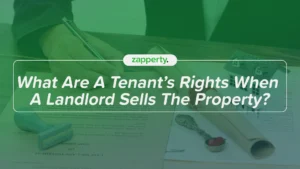Selling a tenanted property in the UK can seem complex, especially with legal responsibilities, tenant rights and investor expectations to consider. Whether you’re a landlord looking to exit the buy-to-let market or offload a challenging investment, selling a property with tenants in situ can actually be an advantage, if done correctly.
This guide explains everything you need to know about how to sell a tenanted property with tenants in situ, including a step-by-step process, legal considerations, and how to maximise your property’s value.
What Does It Mean to Sell a Property with Tenants in Situ?
Selling a property with tenants in situ means transferring ownership of a rental property while the current tenants remain in place. The new buyer takes over the tenancy agreement, rent payments and all landlord responsibilities from the moment of completion.
This is a popular option among property investors who want rental income from day one, and it’s increasingly common in the UK market as landlords reassess their portfolios.
Why Sell a Tenanted Property?
There are many valid reasons landlords choose to sell with tenants in place, including:
- Steady income: Investors often prefer properties with reliable tenants.
- Avoiding void periods: Keeping tenants ensures continued rental income during the sale.
- Time savings: No need to wait for tenancy expiry or serve notice.
- Appeals to investor buyers: Buy-to-let investors often seek ready-made opportunities.
However, it’s not right for every situation. Problematic tenancies, rent arrears, or short lease lengths may reduce buyer interest. Always weigh the pros and cons before deciding.
How to Sell a Property with Tenants in Situ – Step-by-Step
Selling with tenants requires thoughtful planning. Below is a clear, practical guide to help UK landlords navigate the process smoothly.
1. Review the Tenancy Agreement
Start by checking the type and status of your tenancy. Most UK landlords use an Assured Shorthold Tenancy (AST). Confirm whether it’s periodic (rolling) or fixed-term, and whether there are break clauses or sale-related terms.
Also review:
- Deposit protection status
- Compliance documents (EPC, gas safety certificate)
- Whether the agreement allows property access for viewings
2. Communicate with Your Tenants
While you’re not legally required to ask tenant permission to sell, transparency is key. Inform them early, explain what selling with tenants in situ means, and offer reassurance about their rights.
This builds trust, reduces potential conflict and often results in better cooperation during viewings.
3. Choose Your Selling Strategy
You have two core options:
- Sell with tenants in situ: Market the property to landlords/investors/cash house buyers. Ideal if you have reliable tenants and a strong rental yield.
- Sell vacant: Serve notice (following legal procedures), wait for tenants to leave, then market to residential buyers.
Selling vacant can appeal to a wider audience but comes with delays, potential void costs, and more administration.
4. Get an Accurate Valuation
Valuing tenanted properties differs from standard homes. Factors like:
- Rental income
- Tenant history
- Yield potential
- Lease length
…all affect the valuation.
Use a property professional who understands the buy-to-let market. At Zapperty, we offer accurate, data-driven valuations tailored to investor demand.
5. Market to the Right Buyers
If you’re selling with tenants in situ, your target buyer is a landlord or property investor, not an owner-occupier. Your marketing should reflect that.
Highlight:
- Current rent
- Tenant payment history
- Property condition
- Compliance status
Professional photography, investment-focused listings, and clear tenant details all help attract serious investor interest.
6. Prepare for Viewings (Respectfully)
You must provide tenants with at least 24 hours’ notice in writing for any viewings, and ideally agree on a convenient schedule. Respect their privacy, maintain communication, and ensure the property is presented as well as possible.
Some landlords offer small goodwill gestures (like a gift card) as thanks for cooperation.
7. Finalise the Sale
Once you accept an offer, your solicitor will handle the transfer of tenancy documents and legal responsibilities. Be sure to:
- Pass over the tenancy agreement
- Confirm deposit scheme details
- Provide safety certificates
- Notify the tenants of the new landlord
The new owner will take on all legal duties, so it’s vital to ensure a clean handover.
Legal Considerations When Selling with Tenants
- Section 21 / Section 8 Notices: You may need to issue one if selling vacant, but they don’t apply when selling with tenants in place.
- Tenant Rights: Tenants do not have to leave if you’re selling unless they’re served proper notice. Learn more about tenant rights when selling your property.
- Right to Quiet Enjoyment: Tenants can refuse viewings or access without notice — always follow legal procedures.
- Deposit Transfer: The tenant’s deposit must be legally transferred to the new landlord’s protection scheme.
Pros and Cons of Selling with Tenants in Situ
| Pros | Cons |
| Continuous rental income | Fewer potential buyers |
| Appeals to investors | Lower valuation in some cases |
| No need for eviction process | Restricted viewing access |
| Less disruption for tenants | Legal complexity (if agreements unclear) |
Why Sell Your Property with Tenants in Situ with Zapperty?
At Zapperty, we make it easy for landlords to sell tenanted properties without hassle. Our platform is tailored for the buy-to-let market, helping you:
- Get a fair offer
- Maintain rental income during the process
- Complete the sale quickly and legally
With fixed fees, full transparency and support at every step, we take the stress out of selling your rental property – with or without tenants in situ.
Selling a tenanted property isn’t just possible – it can be profitable, fast, and straightforward with the right strategy. Whether you want to offload a single buy-to-let or restructure your portfolio, understanding your options and rights is key.
If you’re considering selling your tenanted property, Zapperty is here to help. Get your free cash offer today!
Sell a Property with Tenants in Situ FAQs
Can I sell a property if the tenant is refusing access for viewings?
Yes, but you must respect their right to quiet enjoyment. You can only enter with their permission unless there’s an emergency. Try to negotiate a viewing schedule.
Will selling with tenants reduce my property value?
Not necessarily. In fact, a well-performing tenanted property with long-term tenants can increase its value for investors. However, poor tenant history or low yield might lower the sale price.
What happens to the tenancy after the sale?
The tenancy continues unchanged, and the buyer assumes all landlord responsibilities from the completion date.
Do I need to return the tenant’s deposit?
No – the deposit must be transferred to the new landlord along with scheme registration details.




